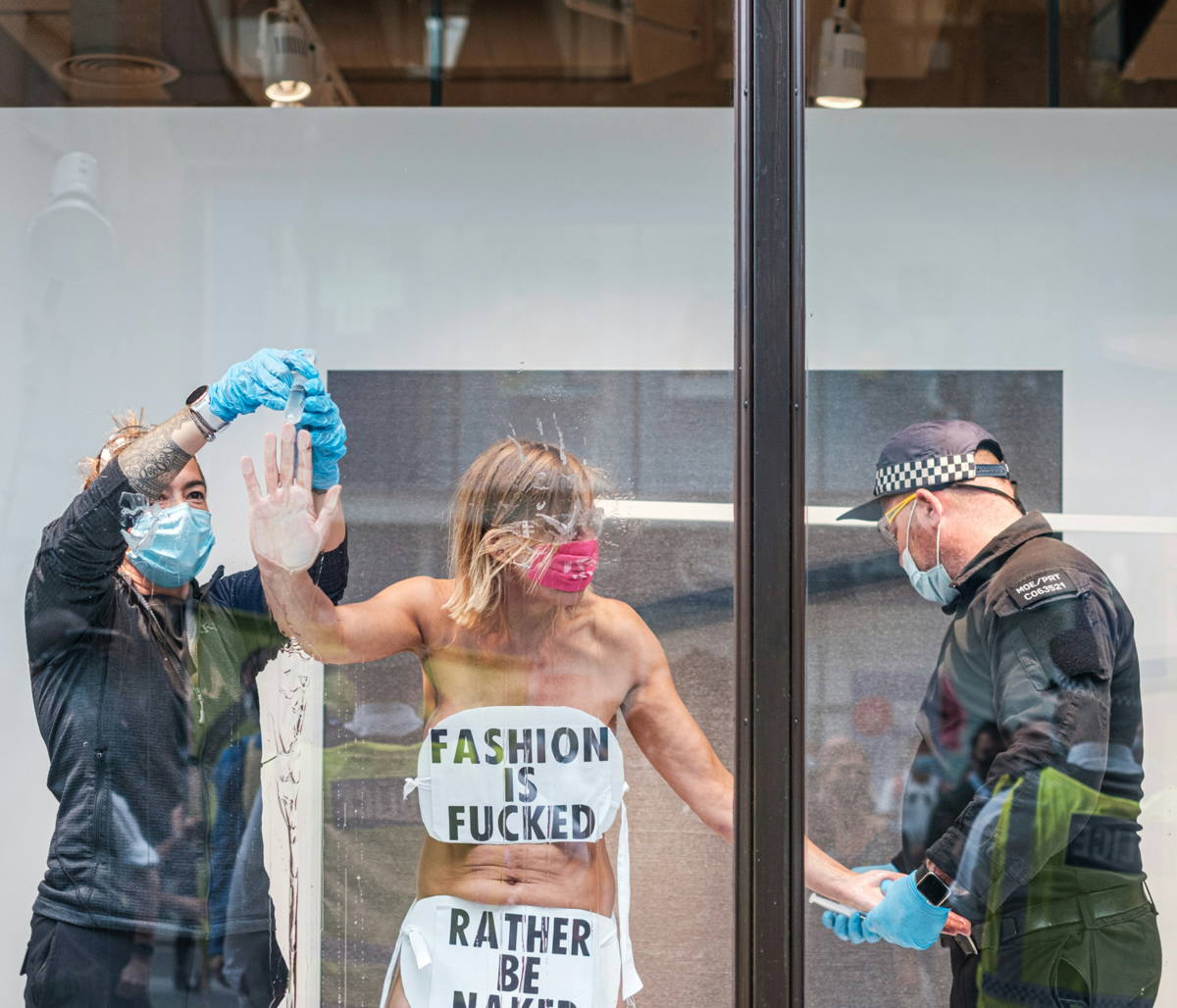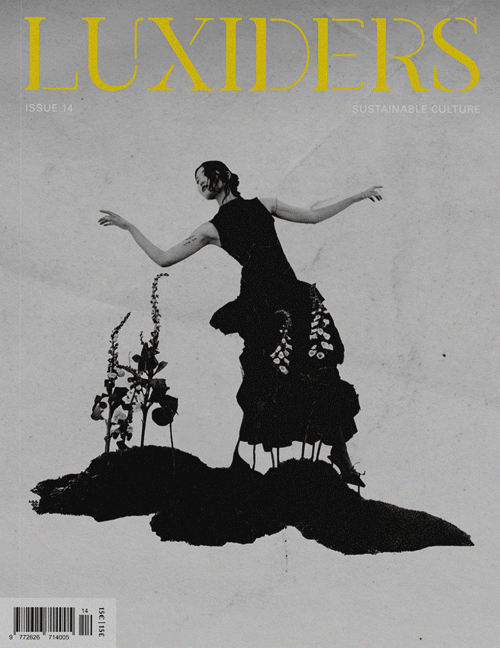
Do We Really Need Sustainable Certifications in a Greenwashing Fashion World?
Sustainable certifications like GOTS, OEKO-TEX®, and Bluesign® aim to bring transparency to fashion. But in a world saturated with greenwashing, how important are these labels, and which ones truly matter?
The Rise of Sustainable Certifications
In today’s fashion landscape —where almost every brand claims to be “eco-friendly” or “responsible”— certifications have become a key element in separating true commitment from empty marketing. But do they really guarantee sustainability, or have they become another marketing tool in the age of greenwashing?
Sustainability standards and certifications are voluntary guidelines used to demonstrate the commitment to good environmental, social, ethical, and food safety practices. There are over 400 such standards across the world. The trend started in the late 1980s and 1990s with the introduction of Ecolabels and standards for organic food and other products. For fashion, the story of sustainable certifications dates back to the 1990s, when growing public concern about chemical use in textiles, poor labour conditions, and environmental destruction led to a demand for verification systems. By the early 2000s, independent bodies began developing standards to ensure that fabrics, processes, and supply chains adhered to measurable environmental and ethical criteria.
According to Textile Exchange, the number of facilities certified to standards such as GOTS and the Organic Content Standard (OCS) grew by more than 34% in 2020 alone, reflecting the exponential rise of consumer demand for transparency and accountability. A report from McKinsey revealed that 67% of consumers now consider sustainable materials an important factor in their purchasing decisions. Certifications, therefore, serve both as a trust mark for buyers and as a tool for brands to differentiate themselves in a crowded marketplace.
Why Are Certifications Needed
In a greenwashing world, sustainability claims are often vague, unverifiable, or exaggerated. Certifications attempt to solve this by offering:
* Credibility — third-party verification reduces the risk of false claims.
* Transparency — certifications often require supply chain mapping and traceability.
* Consumer empowerment — clear labelling helps shoppers make informed choices.
* Industry alignment — standards create benchmarks for companies to improve their practices.
Still, not all certifications are equal. Some focus on the product, others on the process, and some go beyond environment to include social responsibility. The challenge for consumers is knowing which ones truly carry weight.
The Most Used Eco-Responsible Certifications in Fashion
Below is a guide to some of the most recognised certifications, programmes, and technologies shaping the industry today.
OEKO-TEX® is an international certification that guarantees textiles and related products have been tested and are free from harmful substances for human health and the environment. The label also includes traceability, allowing consumers to identify where and how each item was produced.
TÜV is a certification granted by the German organisation Technischer Überwachungsverein, which ensures that processes and products comply with strict quality and safety regulations. It also promotes the efficient use of resources and technologies that minimise emissions, waste, and energy consumption during manufacturing; and it guarantees that certified companies meet standards that respect workers’ rights.
GOTS (Global Organic Textile Standard) is the world’s leading standard ensuring that products are made with at least 70% organic fibres and that all processes—from the harvesting of raw materials to the final labelling—comply with strict environmental and social criteria. GOTS certification prohibits the use of chemical pesticides and fertilisers; regulates the use of water, energy, and chemicals during processing; requires compliance with international labour standards, such as fair wages, workplace safety, and the prohibition of child or forced labour; and ensures full product traceability.
Leather Working Group (LWG) is a global standard that promotes responsible practices to minimise resource consumption, emissions, and waste generated during leather tanning. It guarantees the safe handling of chemicals, reducing pollution and protecting both the environment and workers’ health. It also ensures transparency regarding the origin of the leather.
Bluesign® is an international certification that ensures safety, sustainability, and efficiency in textile production. It focuses on minimising environmental impact, optimising the use of resources, and protecting the health of workers and consumers. Unlike OEKO-TEX, which only certifies the final product, Bluesign® evaluates the entire production process, ensuring sustainability from raw material to finished garment.
Woolmark is the leading certification label in the wool industry, recognised worldwide as a symbol of quality, authenticity, and sustainability. It guarantees that labelled products meet the highest standards in purity, performance, and responsible wool production.
The Mulesing-Free label guarantees that the wool used in a product comes from sheep that have not been subjected to mulesing, a painful practice used in some sheep farming to prevent parasitic infections.
Global Recycled Standard (GRS) is an international certification that ensures a product contains verified recycled materials and has been produced under responsible environmental and social criteria.
OCS (Organic Content Standard) is a global certificate that verifies the presence and amount of organic material in a textile product and tracks the flow of this material from its origin to the final product. It does not evaluate social or environmental criteria beyond organic content—that is, it does not regulate the use of chemicals or labour conditions in production.
The Eco Cycle Recycle label identifies products that optimise the use of pre-consumer recycled fibres by utilising waste generated during the production process. This approach promotes a circular economy by reintegrating leftover materials into the production chain, thereby reducing waste and encouraging more sustainable practices in the textile industry.
VeganOK is a certification recognised in Europe that guarantees a product is 100% vegan—meaning free from animal-derived ingredients and not tested on animals. It also promotes ethical and sustainable practices, ensuring that products meet responsible manufacturing standards. This certification is used in the food, cosmetics, textile, and other industries, helping consumers identify options aligned with a vegan and environmentally respectful lifestyle.

OTHER IMPORTANT REGULATIONS, PROGRAMMES, AND SUSTAINABLE TECHNOLOGIES
REACH (Registration, Evaluation, Authorisation, and Restriction of Chemicals) is a European Union regulation that ensures the control and safety of chemical substances. Its aim is to protect human health and the environment by promoting the responsible use of chemicals in product manufacturing and encouraging safer, more sustainable alternatives.
Eco-wash technology is an innovative garment treatment process that uses less water, energy, and chemicals compared to traditional methods. This approach significantly reduces environmental impact by minimising emissions and the consumption of natural resources. It applies advanced techniques such as ozone or nebulisation to treat garments, drastically lowering the amount of water used in the process. Harsh chemicals are replaced with biodegradable and less toxic alternatives, protecting both the environment and workers’ health. Additionally, it incorporates energy-efficient machinery that consumes less power, reducing CO₂ emissions associated with the washing process and contributing to a smaller environmental footprint.

Do Certifications Solve Everything?
While sustainable certifications provide trust and guidance, they are not a silver bullet. Many require costly audits, making them inaccessible for small brands. Others face criticism for inconsistent enforcement or limited scope. But the truth is that, in a fashion world drowning in greenwashing, certifications remain one of the most reliable tools we have for accountability. For consumers, they are a compass. For brands, they are a responsibility.
Perhaps the real question is not whether we need certifications, but how we can ensure they remain rigorous, transparent, and accessible, so that sustainability in fashion becomes more than just another marketing claim.
Hightlight Image:
@ Chase Yi via Unsplash






